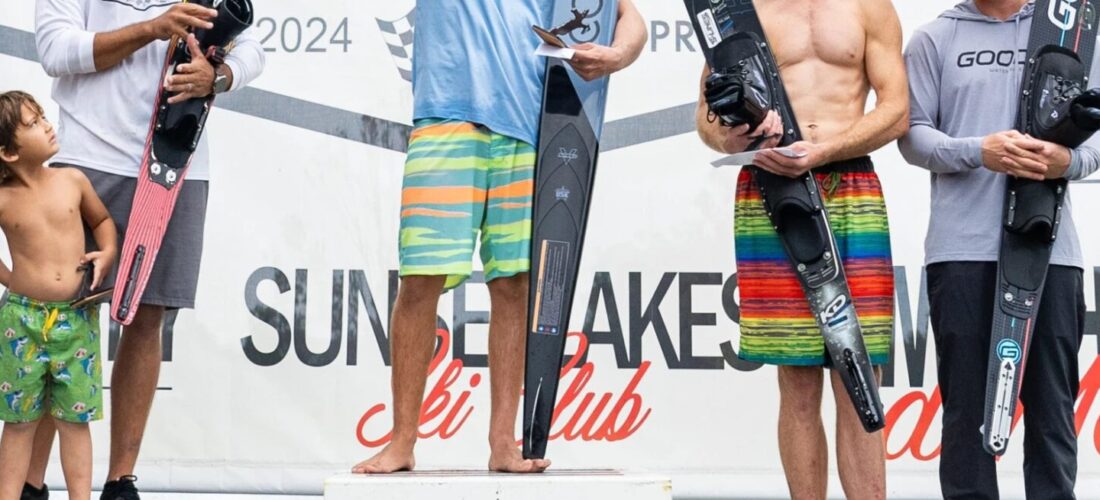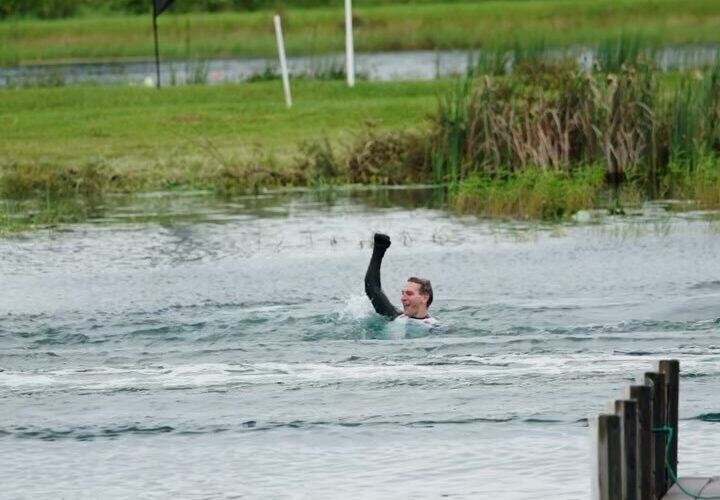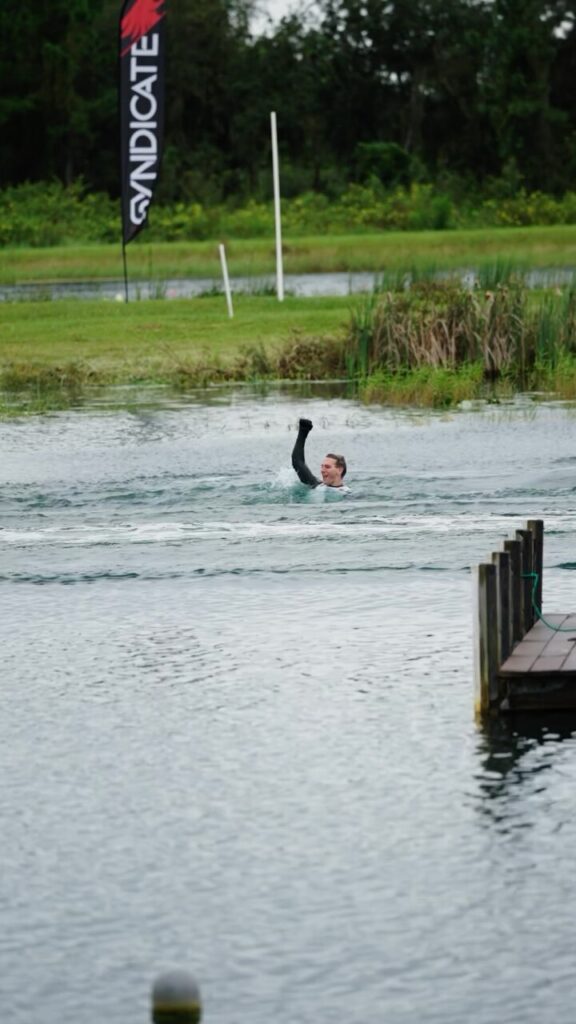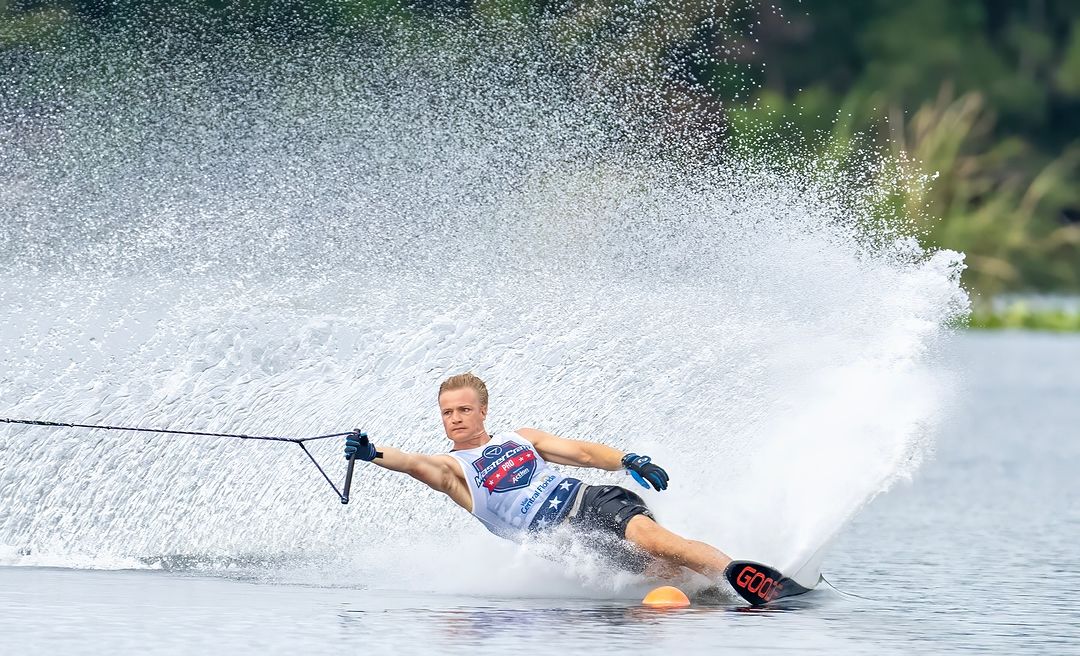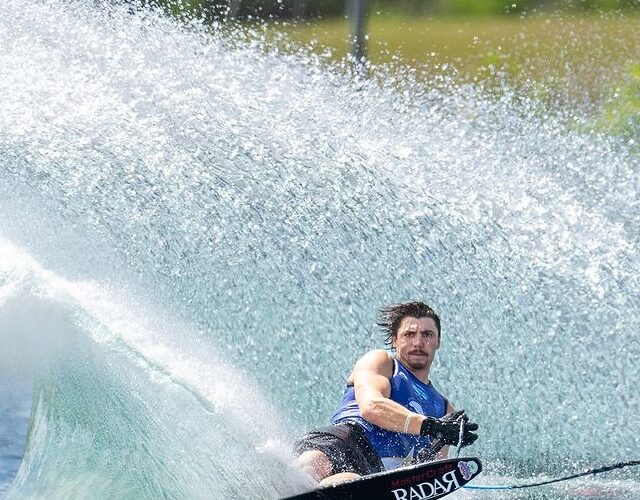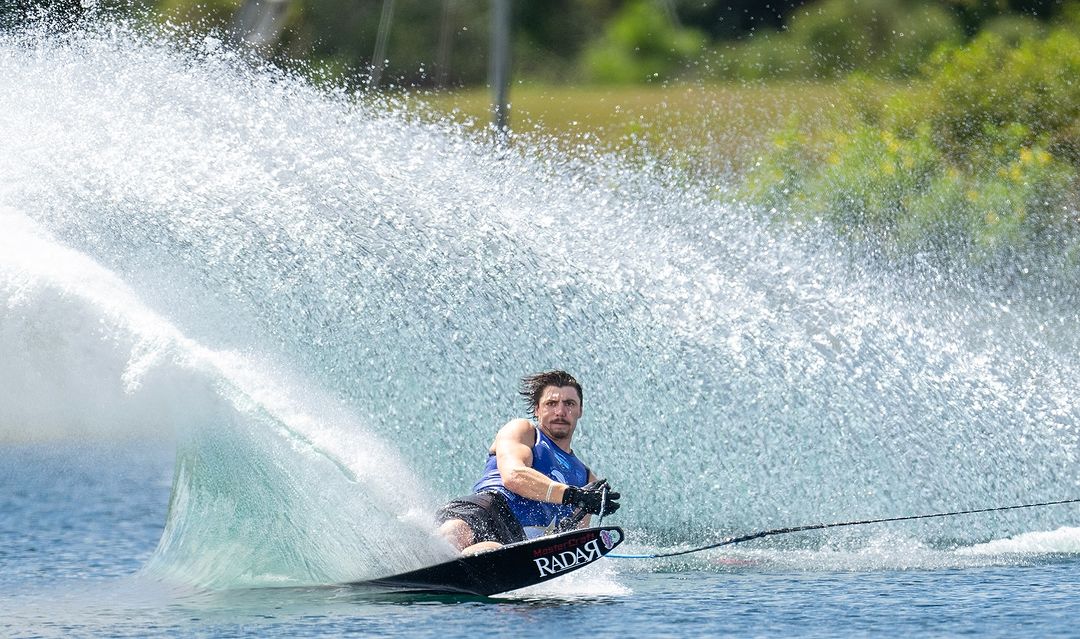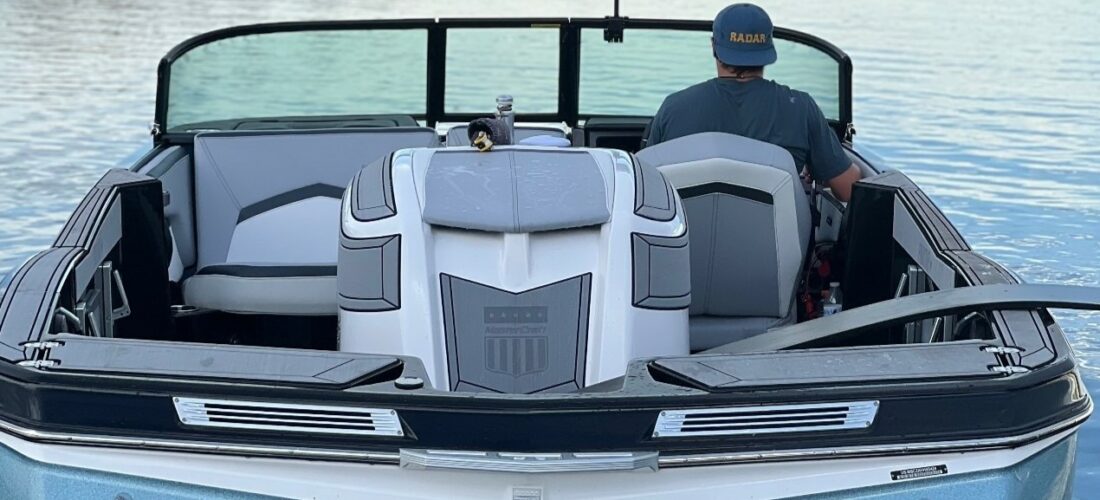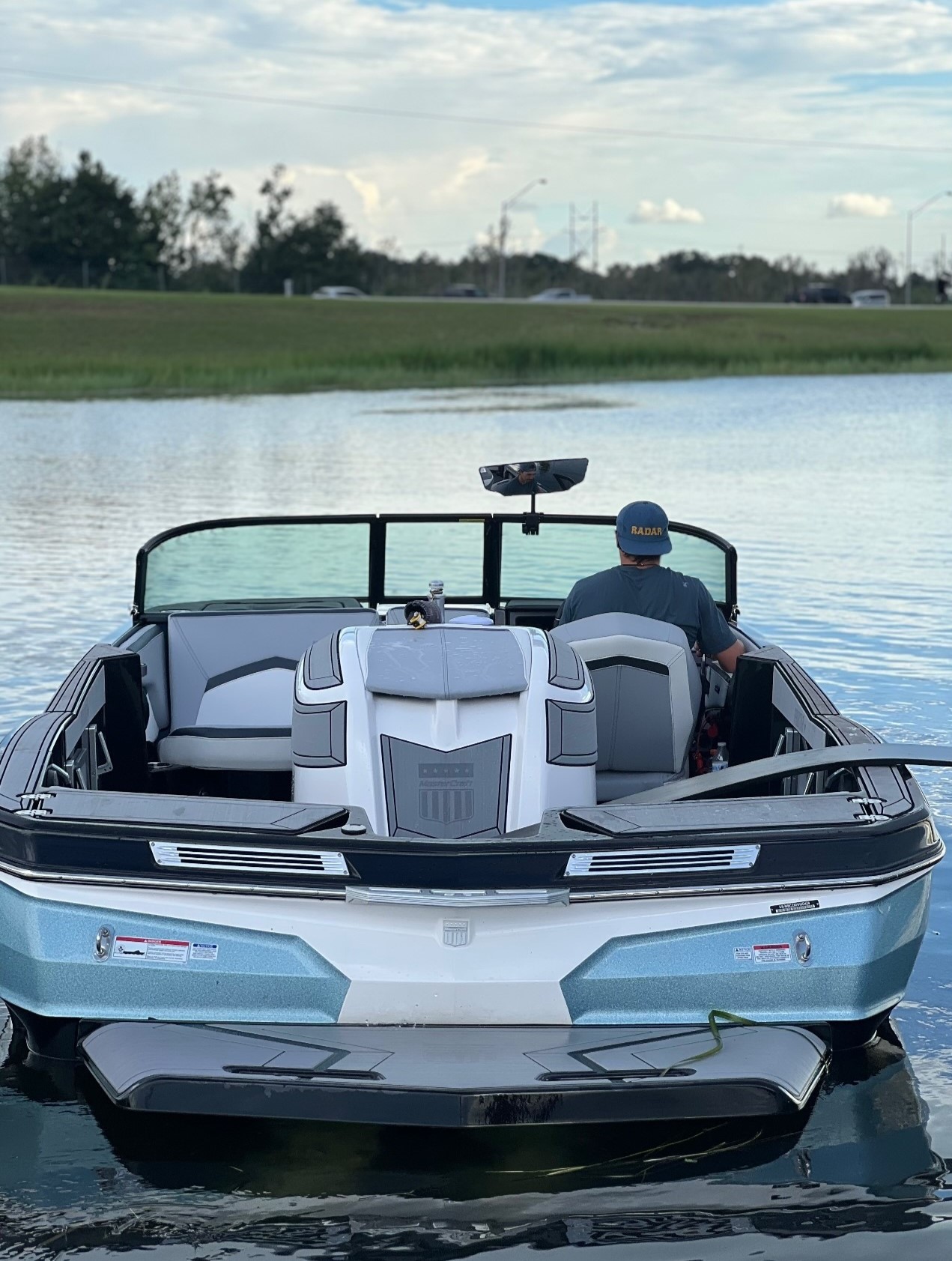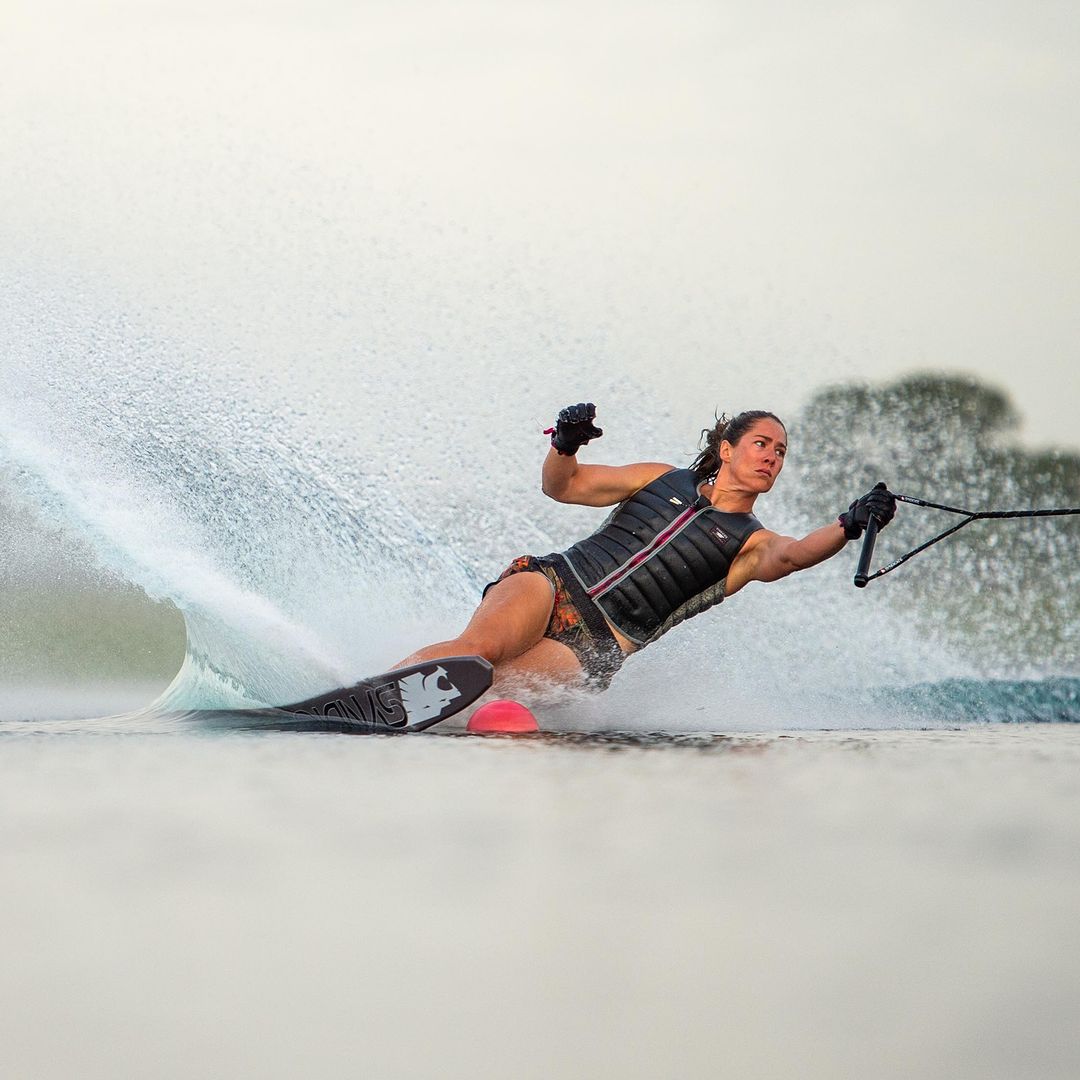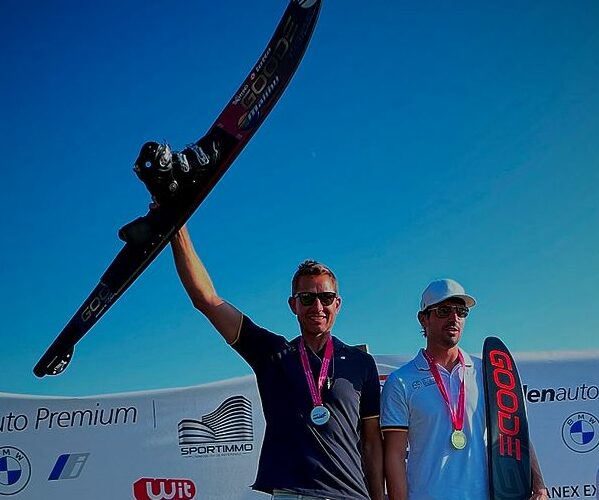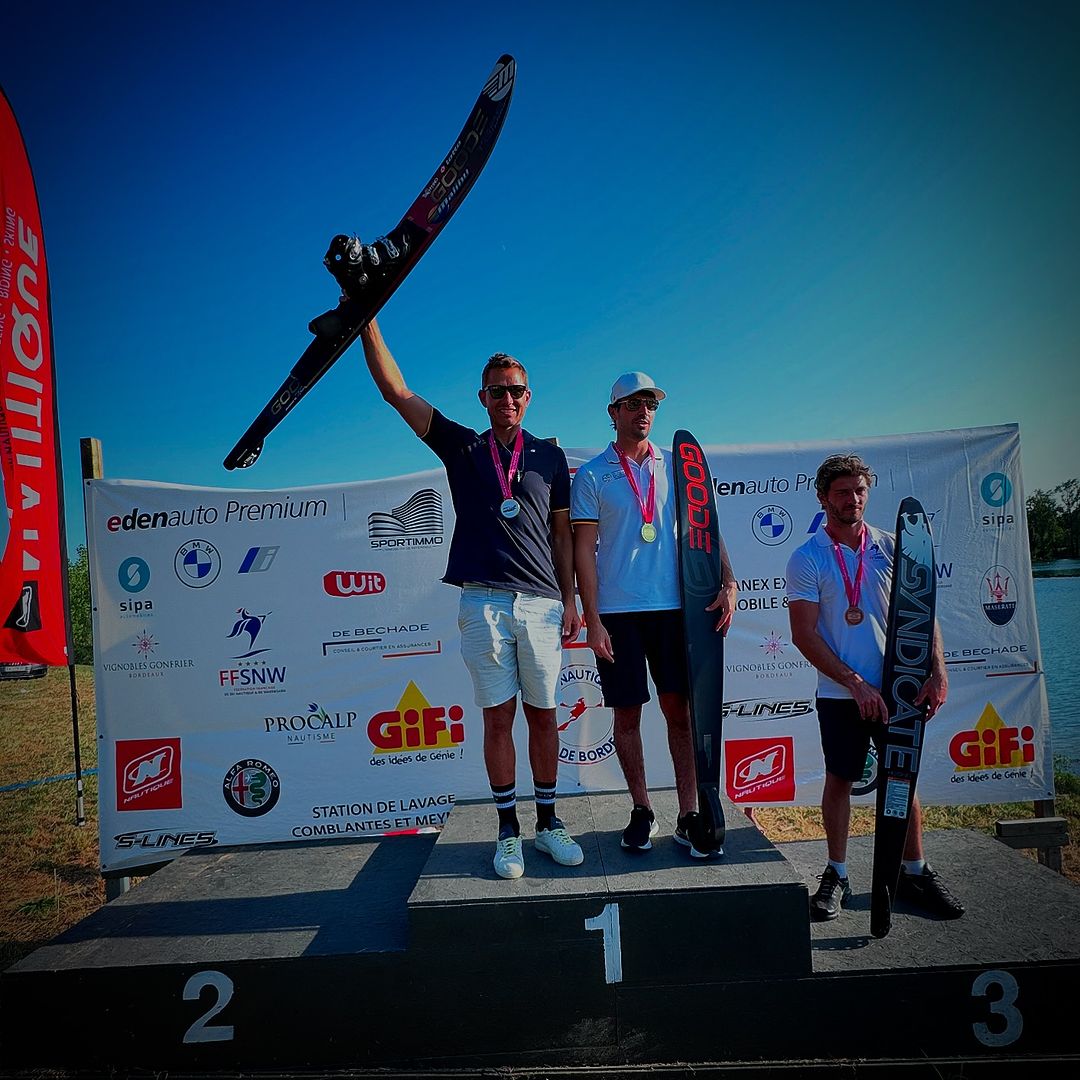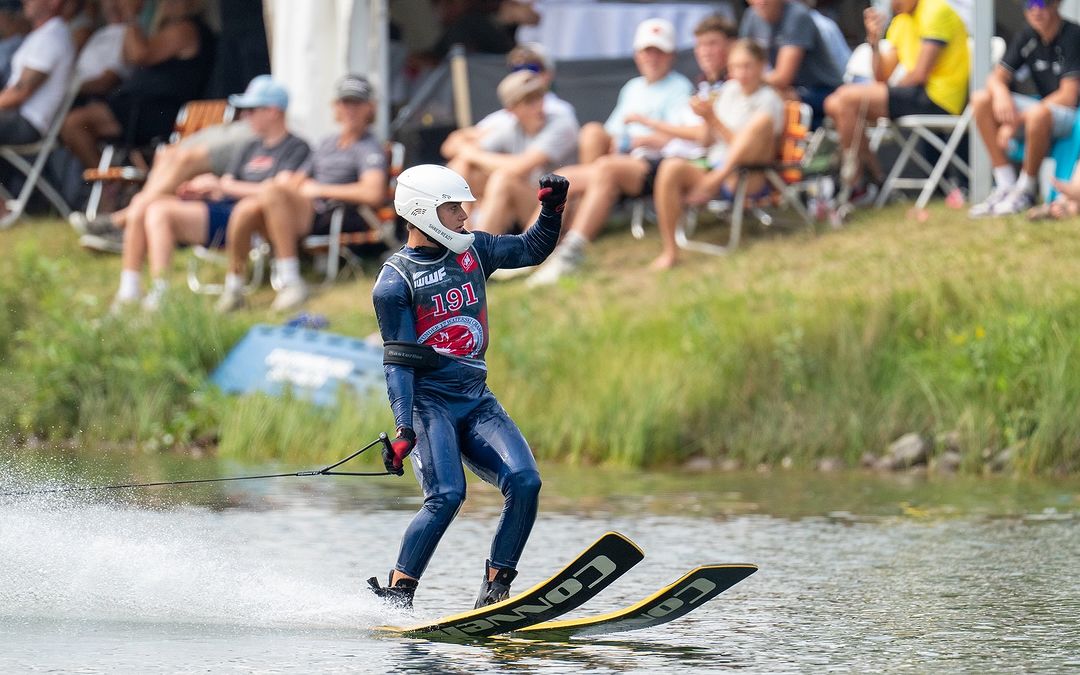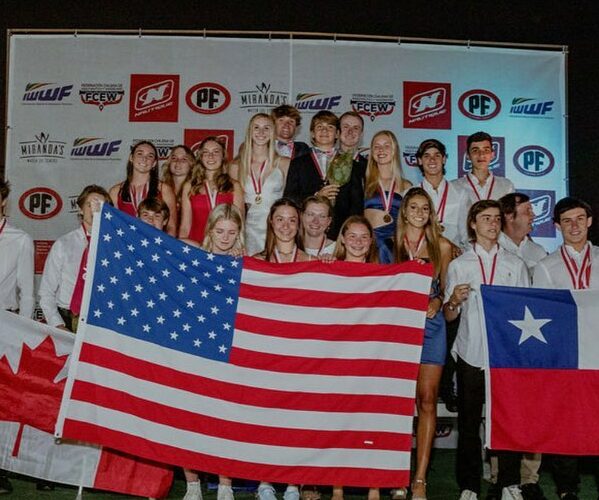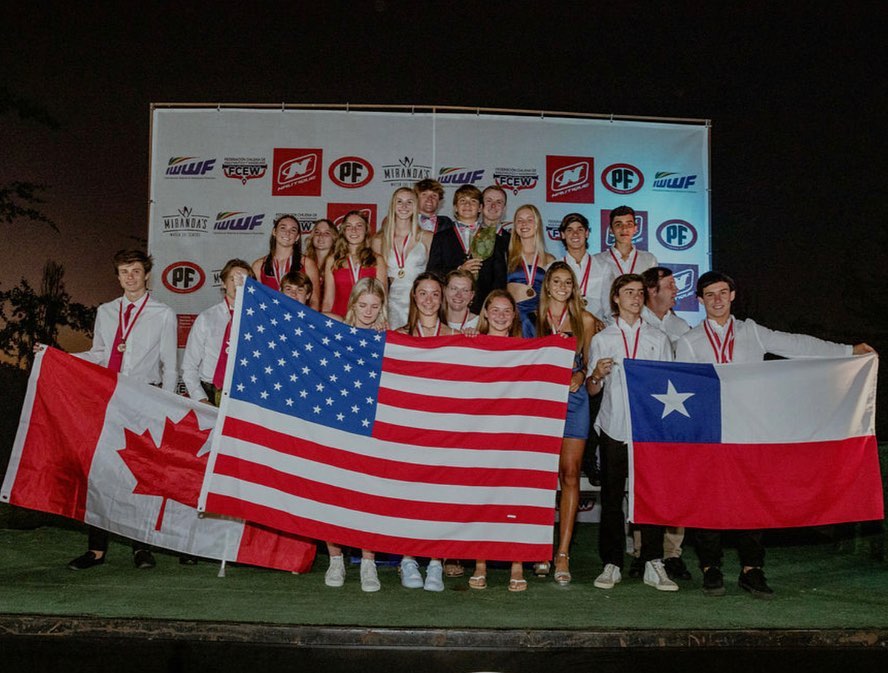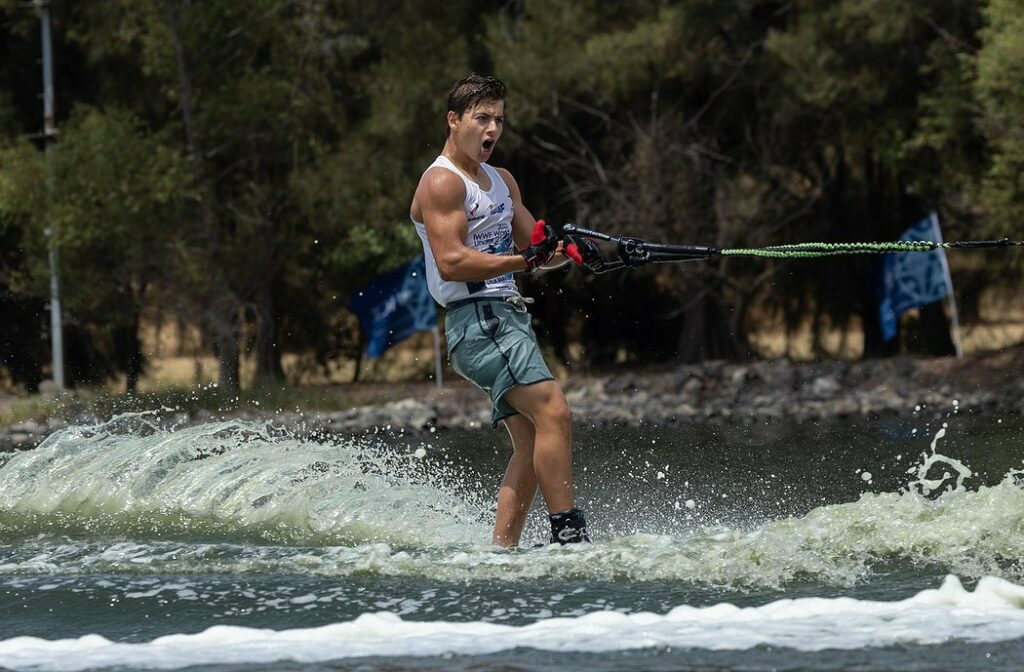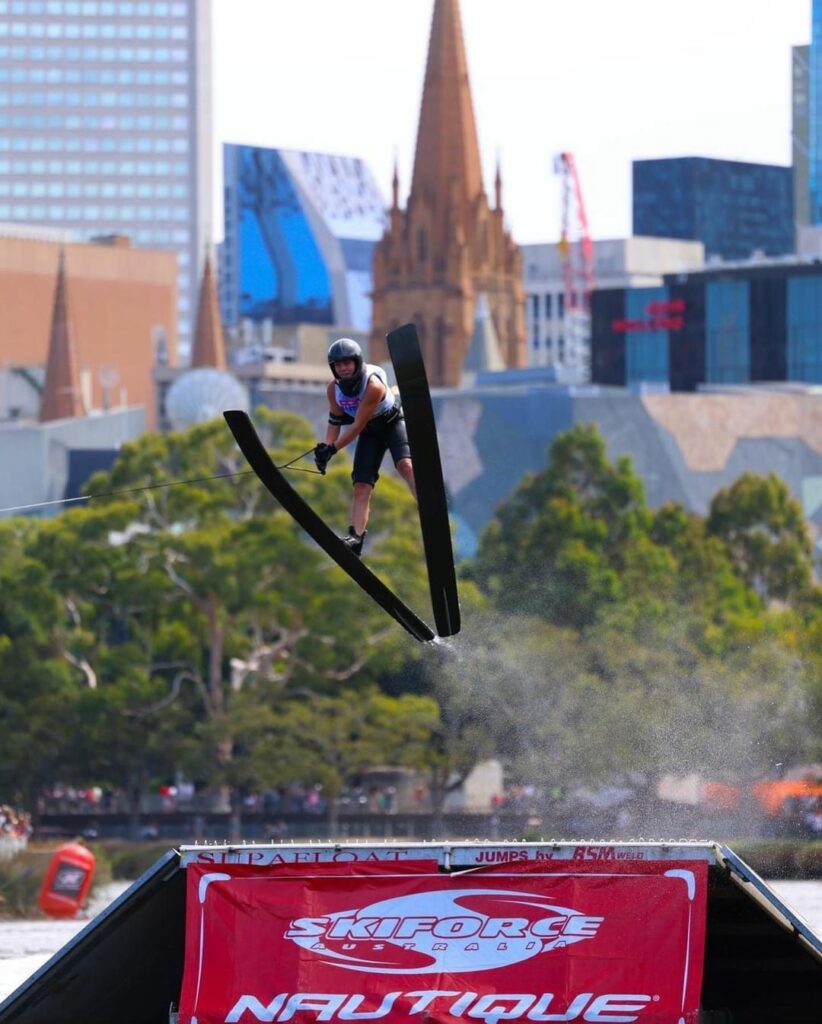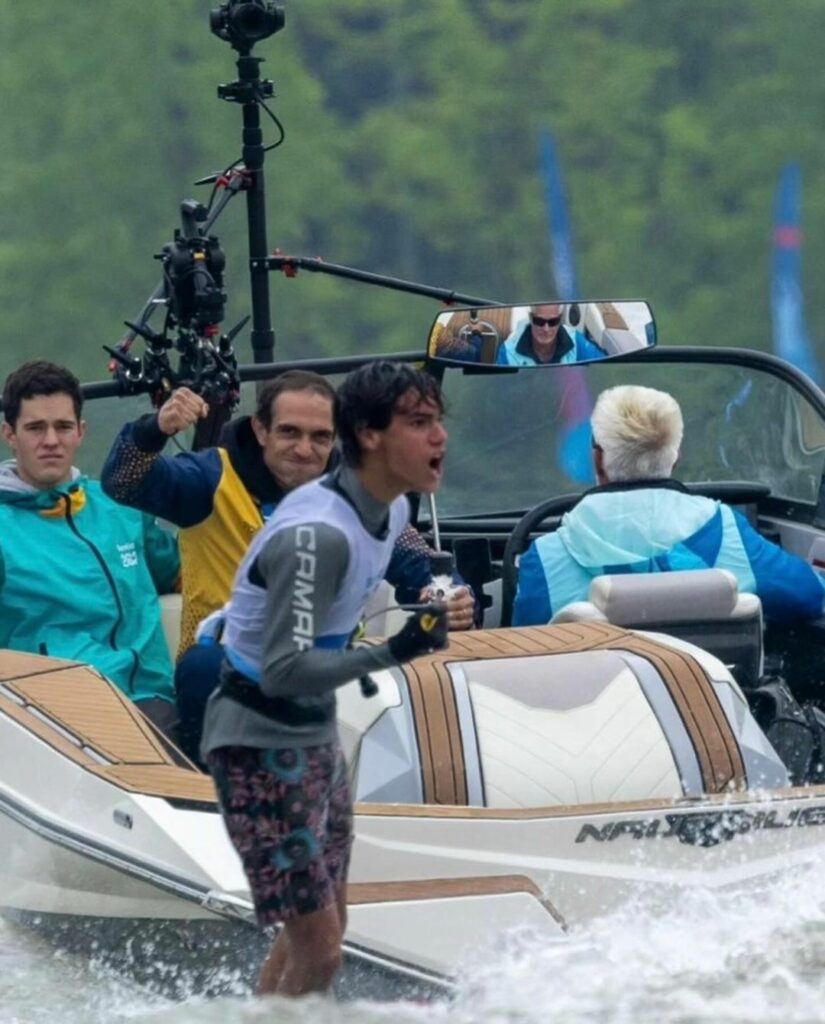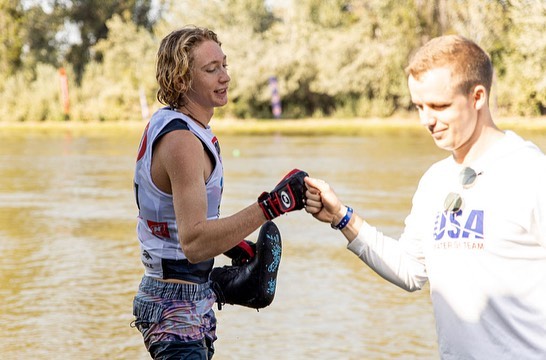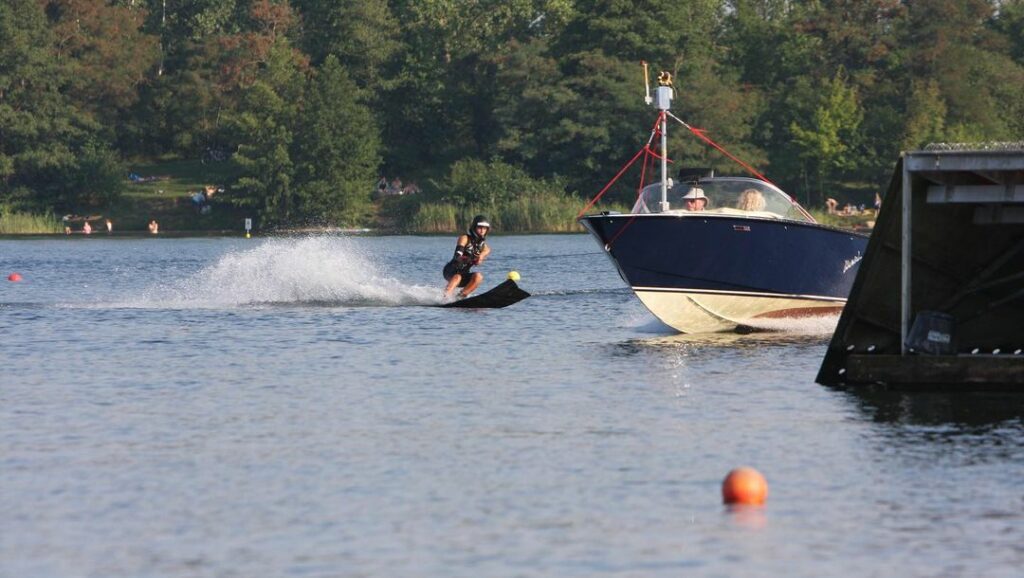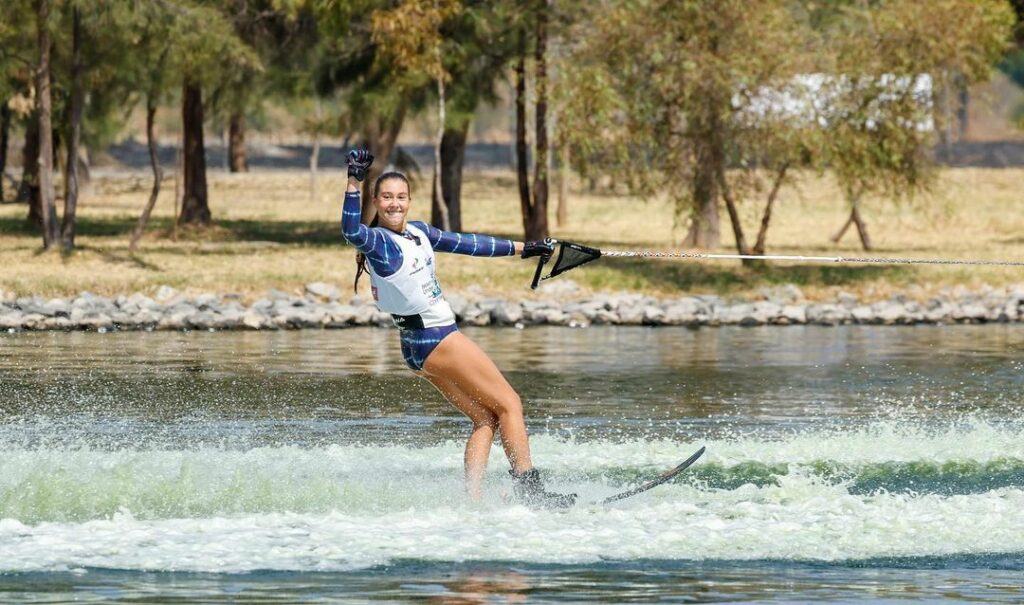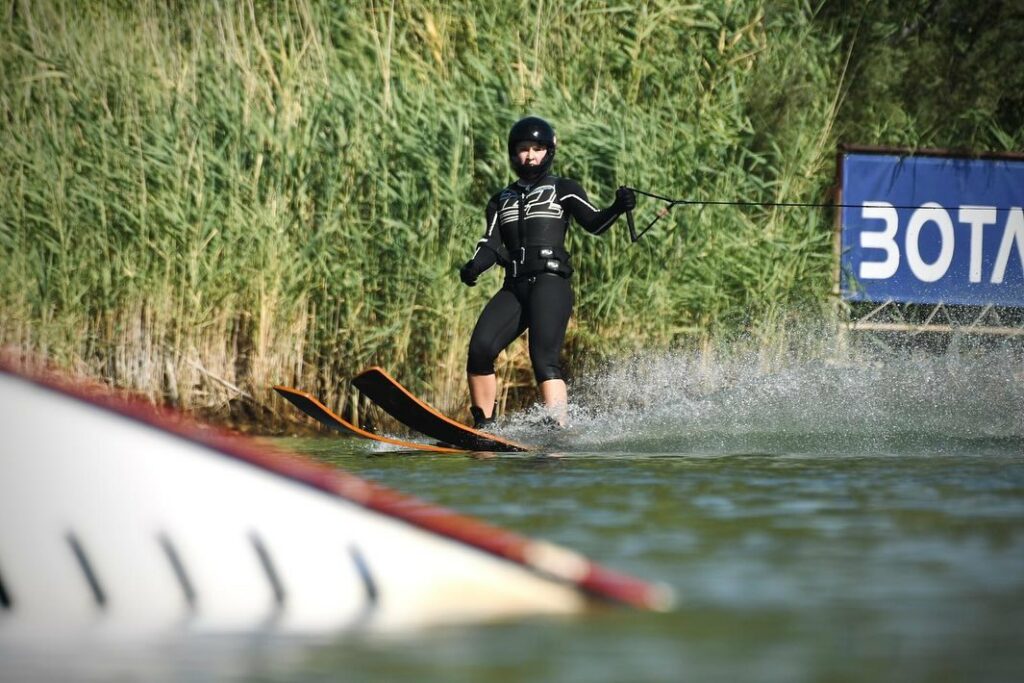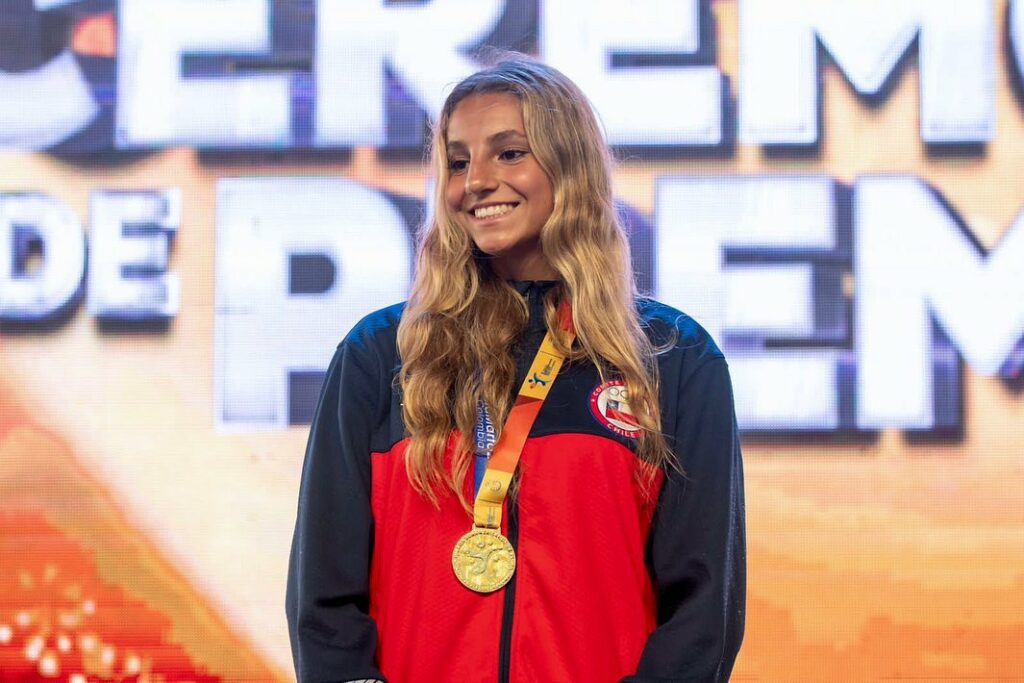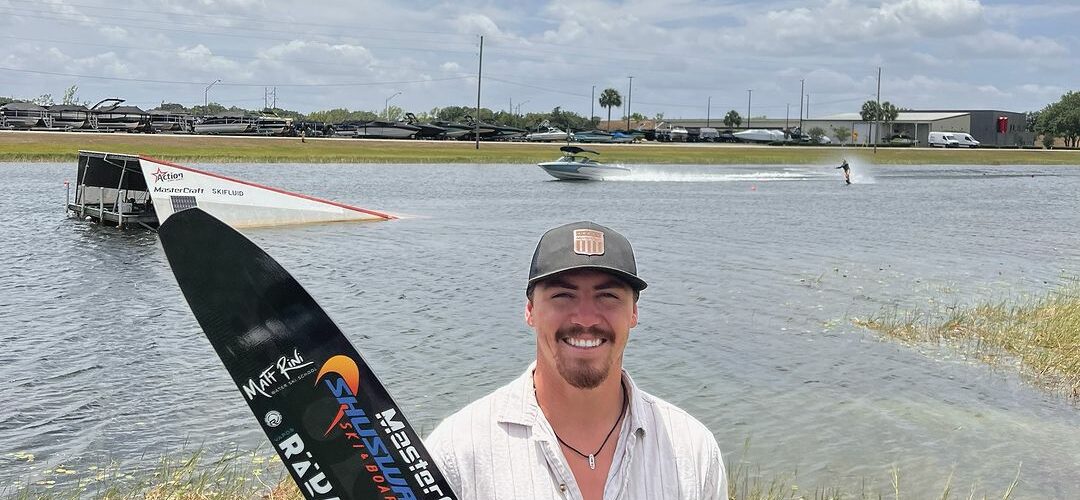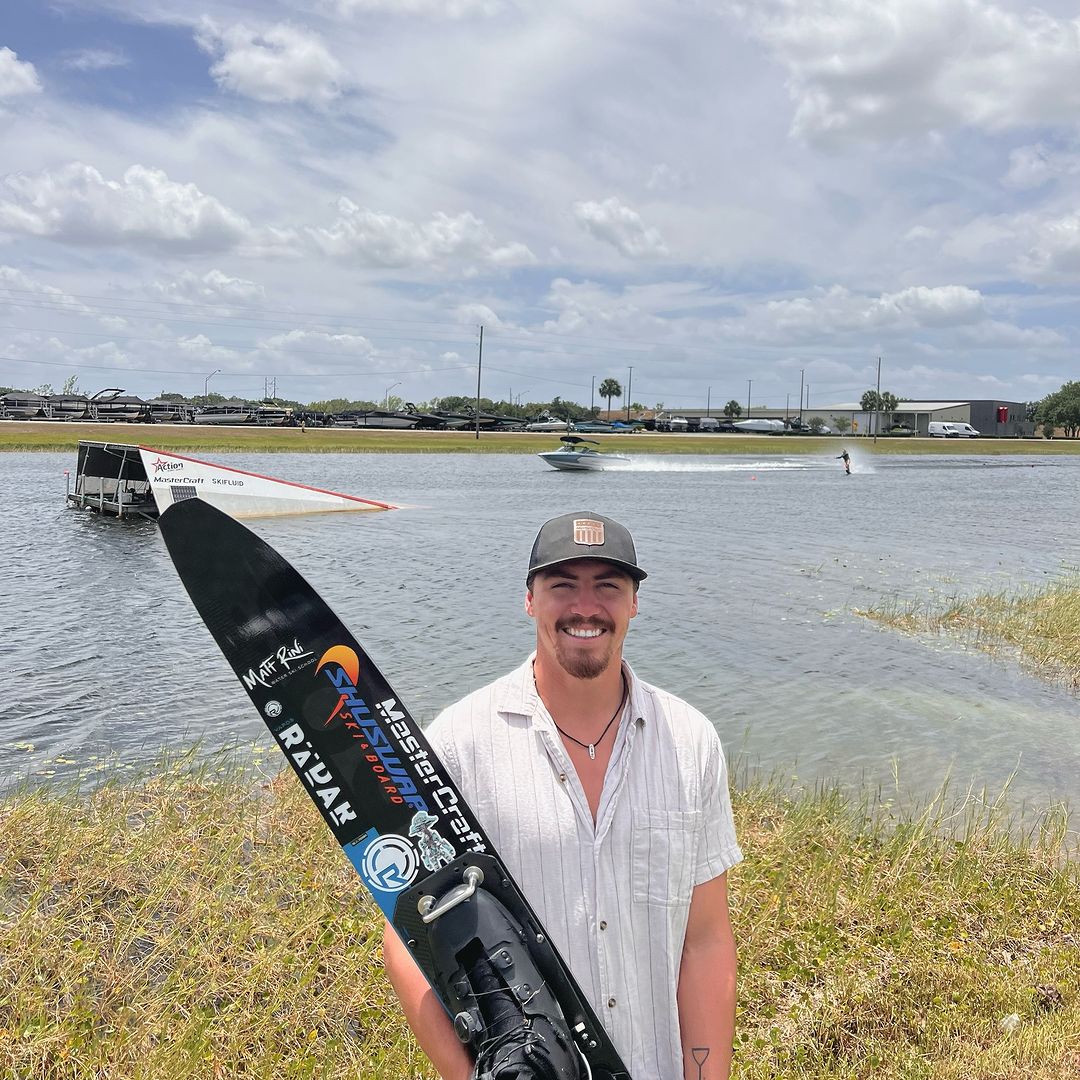2024 Travers Grand Prix | Waterski Pro Tour
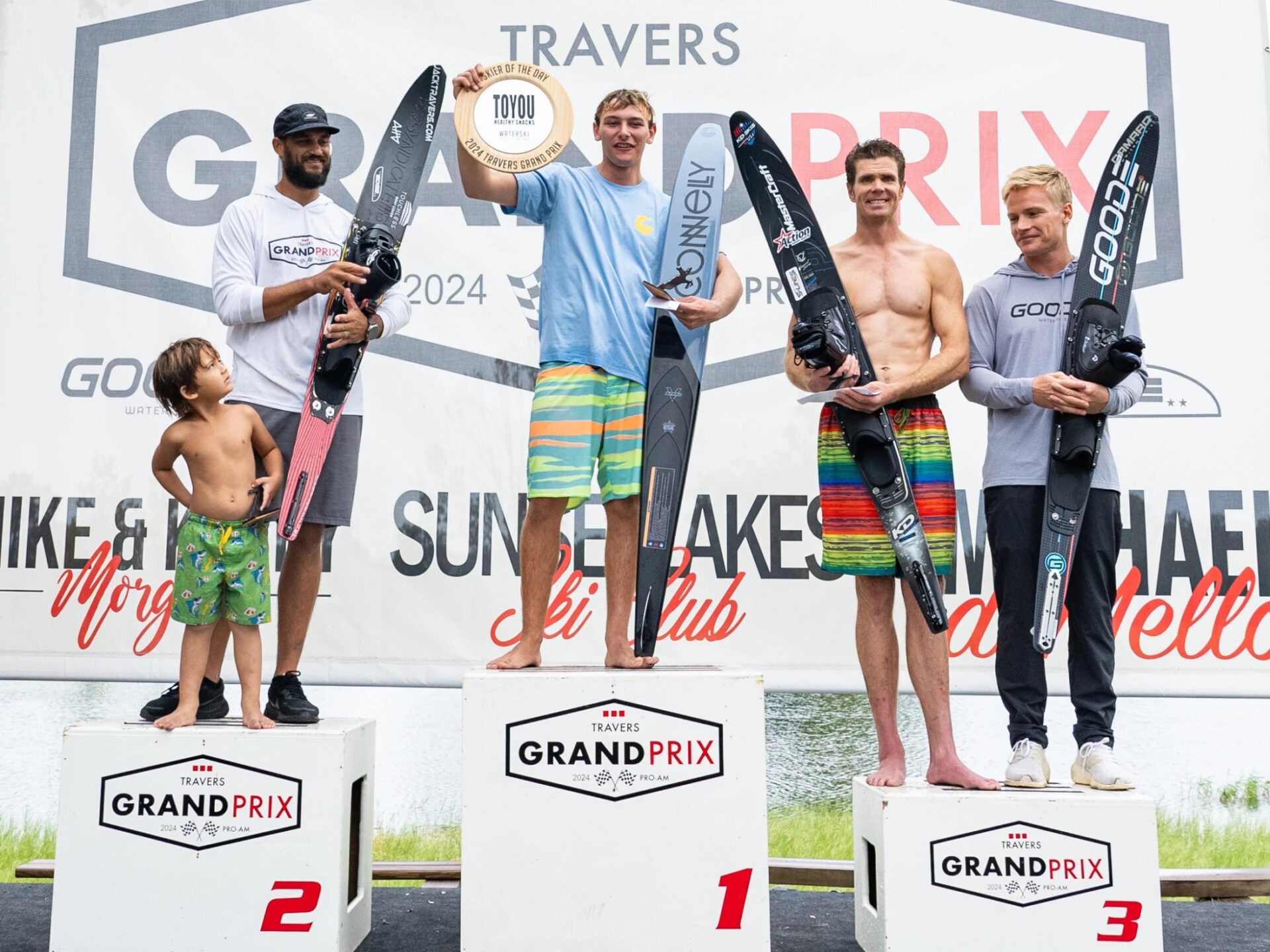
Image: Robert Hazelwood
If this season of men’s slalom has had a theme, it has been of multiple winners. After a full four years and ten months of only four male victors in pro slalom, earlier this year the floodgates opened. On the Tour this year we can count seven winners across just nine stops (with a further two victors in external events). There have been many stories to set these wins apart from the rest: the 38 year old seasoned pro finally getting over the line, the return win after 6 years of trying and a win on return from injury. Yesterday at the Travers Grand Prix however, we saw what will almost certainly prove to be the most seismic.
Lucas Cornale is a name very few slalom fans knew as recently at the start of this year. A teenager with a couple of junior championship podiums and an aggressive style was not expected to be one of the stories of the year on the pro scene. And yet here we are. After a debut podium in March at Moomba behind two world champions, he yesterday stunned the pro waterski scene with the youngest pro slalom win in living memory at 19 years old. It won’t be his last – not even close.
And this was not a plucky, toe over the line win. This was dominance. His first two rounds were good but not exceptional, just enough to qualify in the 8th and final spot. Out first in a field made up entirely of past winners – except, of course, himself – he went for it. With barely a hesitation he turned the 3 at 10.25m/ 41off that is so often the difference between good and great in the men’s slalom field, on his way to scoring a huge 4.5. Even with seven of the best left to ski, this performance looked like it might stand up.
After a groundbreaking run, a nervy wait. The webcast cameras frequently caught Lucas’s looking surprisingly calm as each skier failed to beat his score but there must have been some angst underneath the typically laidback demeanor. Jon Travers got the closest with 4, a worthy reward at the tournament he has organized and run since 2018. Corey Vaughn and Dane Mechlers, another pair of debut winners this year, tied for the last podium spot after matching scores in every round.
Ironically, despite his very unusual final placement of 12th, this result actually increases the chances of a Will Asher victory of the 2024 Waterski Pro Tour. The chasing pack on the Leaderboard all needed a win to stay in the fight for the top prize at the end of the year. Nate Smith, not present at Travers and with a handful of entries this year, is the only threat to Asher’s second title – he needs to win both remaining events with best scores in each, while hoping Will stays outside of the top 2. Asher at 42 has the most wins in men’s slalom this year with three. Perhaps the whispers of a changing of the guard are premature. Below him there are just nine points between Corey Vaughn and Smith in tied 2nd (160 points) and Travers in 6th (151 points). Two events left. The podium fight is going to be fast and furious.
Comparatively, the women’s field has been something like business as usual this year, as it was at this event. Not that it wasn’t exciting. Ahead of the rest of the field by a margin, each of Jaimee Bull, Regina Jaquess and Whitney McClintock-Rini traded the lead between them across the three rounds, with not one 10.75m missed – until a run-off for the win. Jaquess’s course record of 2.5 at 10.25 paired with Bull and McClintock Rini each scoring 2 made the second round of qualifying the highest scoring ever. Jaimee and Whitney were once again tied at 2 in the final as Regina managed 1. So a run-off for the win, a repeat of the 2021 Malibu Open. As in that instance, Whitney won but this time more spectacularly, running 10.75m straight off the dock, before another 2 at 10.25m. Jaimee followed and looked great on 10.75 until 4 but an uncharacteristically poor 5 left her stranded in 2nd. Making up for her disappointing MasterCraft Pro last week, Whitney now has two wins in three as she accelerates during this countdown til the end of the season.
Bull has held the lead of the Tour since the opening stop in May. A very strong showing at the mid-season events outside of the USA put strong daylight between her and the rest. This gap has been eaten into over the last three events, however, as her two great competitors have shared the wins. Both McClintock-Rini and Jaquess can take the Tour win with victories at the last two events as they aim to deny Bull a fourth consecutive Tour win. Paired with a huge showdown in men’s jump at King of Darkness at the end of the month, the nighttime event is set to be explosive. See you there.
For event highlights, scores, replays and more visit Waterski Pro Tour.
